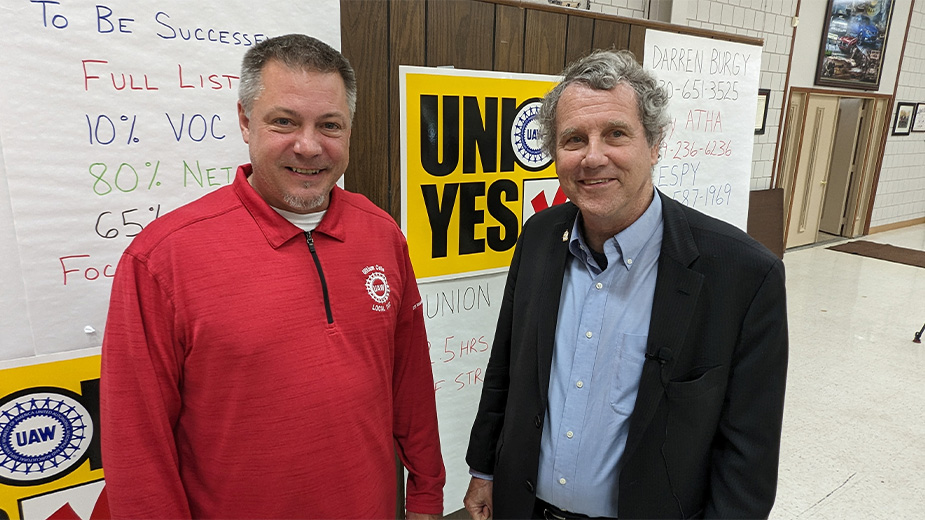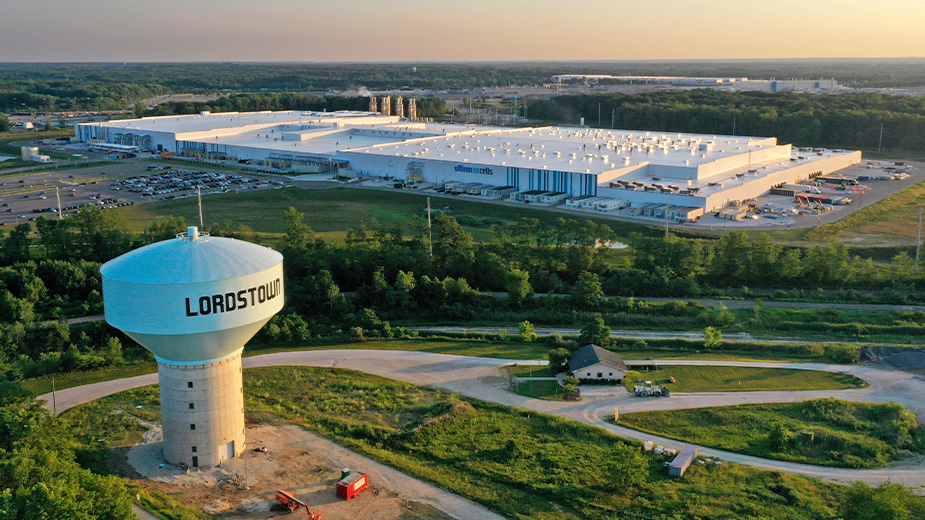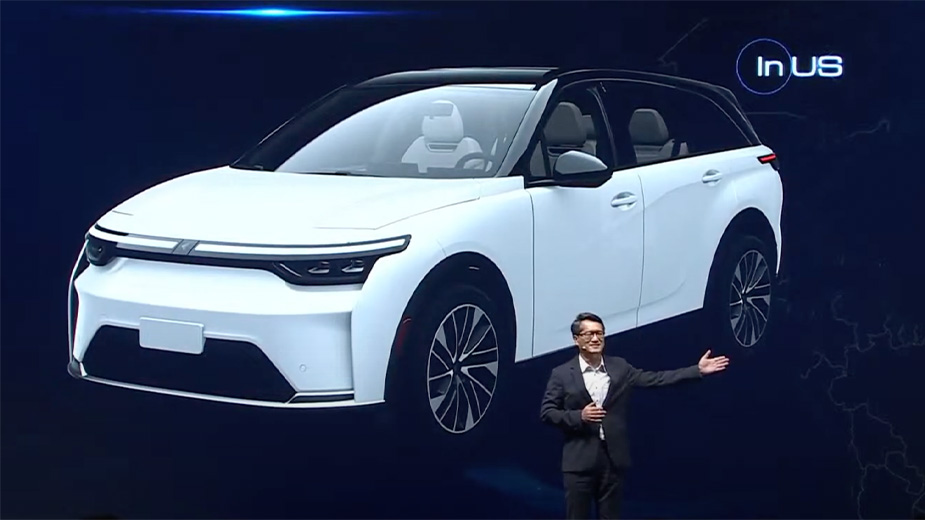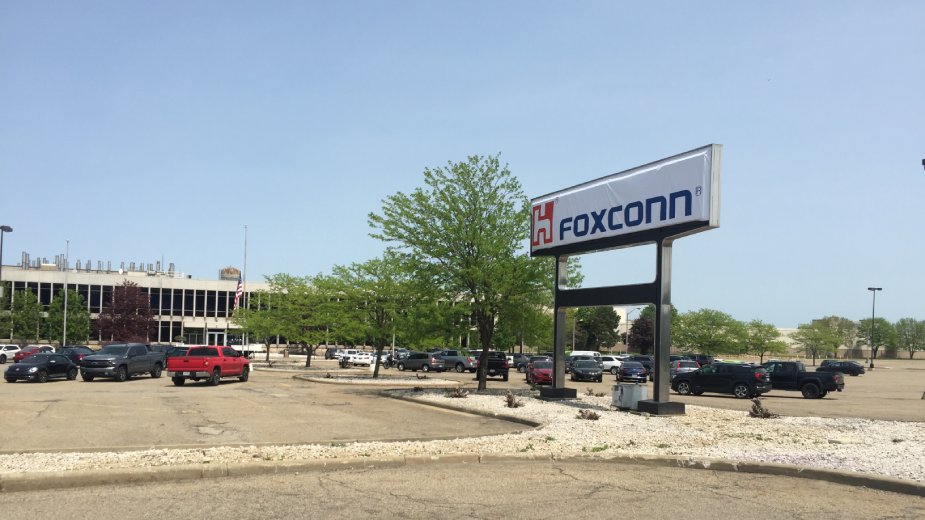UAW Official: GM Proposal ‘Transformational’ for Autoworkers
YOUNGSTOWN, Ohio – The decision of General Motors Co. to fold its joint-venture battery plants into a national agreement with the United Auto Workers is “transformational” for the auto industry and its hourly employees, a union official said Friday.
“It’s huge,” said Dave Green, director of UAW Region 2B. “It won’t only give our members a just transition, but gives the next generation a shot at a good-paying job in the auto industry.”
UAW President Shawn Fain announced in a video address to workers Friday afternoon that GM had agreed to include its battery plants in national collective bargaining discussions toward a national contract now underway with the union.
GM and Korea-based LG Energy Solution together formed Ultium Cells LLC, which manufactures battery cells for electric vehicles at its new plant in Lordstown.
“This is transformational for the entire industry,” Green said.
Ultium is close to completing a second plant in Spring Hill, Tenn., and has started work on a third factory near Lansing, Mich..
UAW members have been out on a targeted strike against all Big Three automakers – GM, Ford Motor Co. and Stellantis – since Sept. 15 after parties failed to arrive at a collective bargaining agreement. The previous UAW contract expired at midnight on that date.
On Friday, Fain announced that the strike would not be expanded from the 39 sites in the wake of GM’s proposal.
Green said the new development should not impact talks that began in January between the UAW and Ultium. In December, workers at the Lordstown plant overwhelmingly voted to join the UAW after an election at the plant and are represented by UAW Local 1112.
Green once served as president of Local 1714 and Local 1112, which represented hourly workers at GM’s assembly plant in Lordstown. GM closed the plant in 2019 after it ceased production of the Chevrolet Cruze, which was manufactured at the plant.
“They’ll be a little extra work to get it rolled in,” he said of the Ultium talks. “But they were getting pretty close anyway to a national agreement,” Green said of the Ultium negotiations. He added a local agreement still needs to be reached, but most of these terms revolve around internal operations of the plant, not national issues such as wage structure and benefits.
On Aug. 27, workers at Ultium’s Lordstown plant overwhelmingly voted to approve an interim agreement that improved hourly wages on average by 25%. The plant employs more than 1,100 workers.
“We’re committed to realizing a fair contract that rewards our employees and ensures the long-term health of the business,” Ultium said in a statement late Friday. “We’ll share more information as appropriate.”

U.S. Sen. Sherrod Brown, D-Ohio, had earlier agitated for the Big Three automakers to fold the battery plants into a national contract.
“A fair wage is a national UAW contract,” Brown said during a visit to UAW 1112’s hall in late August. In July, he and 27 other Democratic senators signed a letter addressed to the CEOs of the Big Three automakers, urging them to include their respective joint venture battery companies in a national contract.
Ultium said in earlier statements that it’s a separate venture from GM, and that it was unlikely that it could be included in any national bargaining agreement the automaker negotiates with the UAW.
In August, Alex Eom, Ultium acting president, said in a response that there was “no practical path” toward merging Ultium into a national agreement.
“GM can’t hide behind the fact that it owns half of this company,” Brown said. “They need to honor the national contract.”
Many thought that extending the national contract to include the battery plants probably wouldn’t happen, Green said. “I don’t think a lot of people thought we were going to get here,” he said.
Indeed, Green found out about the GM proposal just five minutes before Fain announced the developments at approximately 2 p.m. “It was down to the wire,” he noted.
Fain said GM made the change after the union threatened to strike at a GM plant in Arlington, Texas, which makes highly profitable large SUVs.
“Today, under the threat of a major financial hit, they leapfrogged the pack in terms of a just transition” from combustion engines to electric vehicles, he said. “Our strike is working, but we’re not there yet.”
Green agreed that there was still work to do toward a national contract, and the strike remains in effect at the 39 factories and suppliers of the Big Three.
During the afternoon, Green was engaged on a picket line at a Stellantis parts supplier in Streetsboro, Ohio, when the news arrived.
“They were excited,” Green said. Stellantis is currently building an EV battery center near Kokomo, Michigan.
Green observed that the parties are inching closer toward a tentative contract and hopes one is arrived at in the near term.
“The sooner the better,” he said. “Obviously, we’re getting close and our strike strategy is working. This isn’t just about our workers; this is about the future of the auto industry. We’re on the right side of this.”
Pictured at top: Ultium Cells plant in Lordstown, Ohio. (AP Photo by Gene J. Pushar)
Copyright 2024 The Business Journal, Youngstown, Ohio.



